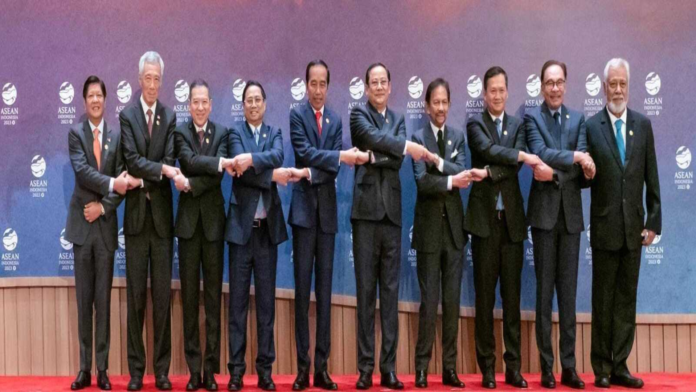By Kyle Dane Ballogan, a senior Political Science student at the University of the Cordilleras.
Countries such as the United States, India, Australia, Japan (QUAD), as well as nations from distant Europe like Germany, France, and the United Kingdom, have openly expressed their support for Philippine territorial claims in the disputed South China Sea. These countries have shown support in two key ways: through acknowledgment and condemnation.
Some have vocally opposed China’s aggressive actions and maneuvers in the region, while others have recognized the Philippines’ position in the 2016 Hague arbitral tribunal ruling. Some have done both. Most recently, South Korea condemned China’s actions, expressing serious concerns that these actions undermine efforts to maintain peace, stability, security, and a rules-based maritime order.
Despite this broad international support, observers question why the Association of Southeast Asian Nations (Asean), of which the Philippines is a founding member, remains elusive and silent regarding territorial disputes.
Since its establishment, the Asean has operated under the guiding principles of the Asean Way, outlined in the Treaty of Amity and Cooperation in Southeast Asia (TAC). These principles include:
- The right of every State to lead its national existence free from external interference, subversion or coercion, renunciation of threat and force;
- Non-interference in the internal affairs of one another;
- Settlement of differences or disputes by peaceful means;
- Renunciation of the threat or use of force: and
- Effective cooperation among themselves.
The Asean Way emphasizes restraint, avoidance, and diplomacy in managing conflicts to promote peaceful coexistence. However, with regards to the South China Sea disputes involving Asean members like the Philippines, Brunei, Malaysia, and Vietnam, individual member states have varying foreign policies and strategies for dealing with the issue. Some members, except the Philippines, may refrain from direct opposition to China due to their own interests and the non-interference principle outlined in the TAC.
The Philippines has turned to international venues due to Asean’s delays in resolving disputes through its “Pacific Settlement of Disputes” provisions. The tensions escalated in August 2023 when China’s coast guards engaged in aggressive actions against Philippine vessels in disputed waters.
Despite efforts such as the 2002 Declaration on the Conduct of Parties in the South China Sea and the 2017 Code of Conduct draft, Asean’s silence on the ongoing disputes reflects the limitations of the Asean Way in addressing regional security and conflict management. Challenges to the Asean Way include:
- Over-adherence to non-interference limits avenues for mediation.
- Exaggeration of consensus decision-making hinders resolution processes.
- Self-restraint influenced by member states’ interests in China leads to inaction.
- Cultural and religious differences among member states contribute to indifference toward disputes that do not directly affect them.
The Philippines finds it challenging to garner support within Asean and may explore alliances outside the region. Asean must reconsider its approach to address current geopolitical challenges effectively. This raises questions about Asean’s role beyond diplomatic rhetoric and the Philippines’ potential to influence Asean’s direction and centrality.
Photo credit: Facebook/BongbongMarcos
Disclaimer: The views and opinions expressed by the author in this piece do not necessarily reflect those of his/her school or Politico.ph.
If you’re a student with a pressing opinion on politics, governance, or social issues, we want to hear from you! Send your opinion piece to Politico.ph’s Campulitika segment. Send a private message to our Facebook page: https://www.facebook.com/politico.ph


